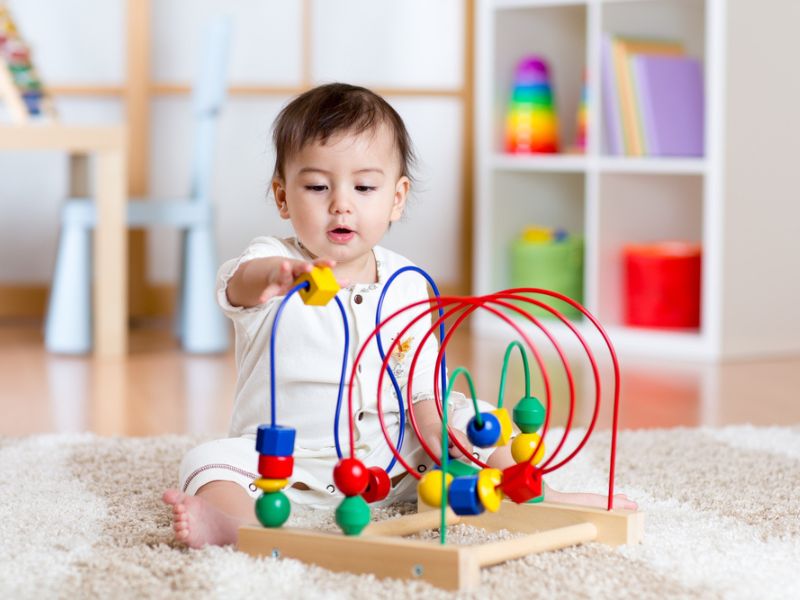Babies are excellent learners right from the moment they enter the world. They possess an incredible ability to absorb information and acquire new skills rapidly. Understanding how babies learn can help parents support their little ones’ development and create an optimal learning environment. Here is a primer on the fascinating process of early learning in infants.
Sensory Exploration
The Window to the World Babies learns primarily through their senses. From the beginning, they engage in sensory exploration, touching, tasting, smelling, seeing, and listening to everything around them. This process allows them to understand the world and make sense of their surroundings.

Image Credit: Shutterstock/Prostock-studio
Language Acquisition
Building Blocks of Communication Language development is a critical aspect of early learning. Babies start by imitating sounds and babbling, gradually progressing to forming words and understanding simple instructions. Parents can foster language acquisition by talking, reading, and singing to their infants, exposing them to a rich vocabulary and encouraging responsive communication.
Social Interaction
Nurturing Emotional Intelligence Babies learn greatly through social interaction with their caregivers and peers. They observe facial expressions, body language, and vocal tones, which helps them develop emotional intelligence. Establishing a routine of positive interactions, such as smiling, cuddling, and participating in collaborative activities, forms a solid basis for promoting wholesome social and emotional development.

Image Credit: Shutterstock/Oksana Kuzmina
Motor Skills
Exploring the Physical World Motor skills development plays a crucial role in a baby’s learning journey. Initially, they learn to grasp objects, roll over, crawl, and eventually walk and run. Encouraging plenty of tummy time, providing safe and stimulating toys, and allowing exploration in a child-proof environment support the development of fine and gross motor skills.
Emotional Regulation
Understanding Feelings As babies grow, they experience a wide range of emotions. Learning to regulate and understand these emotions is crucial to their development. Parents can support this process by providing a secure and nurturing environment, acknowledging and validating their baby’s feelings, and teaching healthy coping strategies.